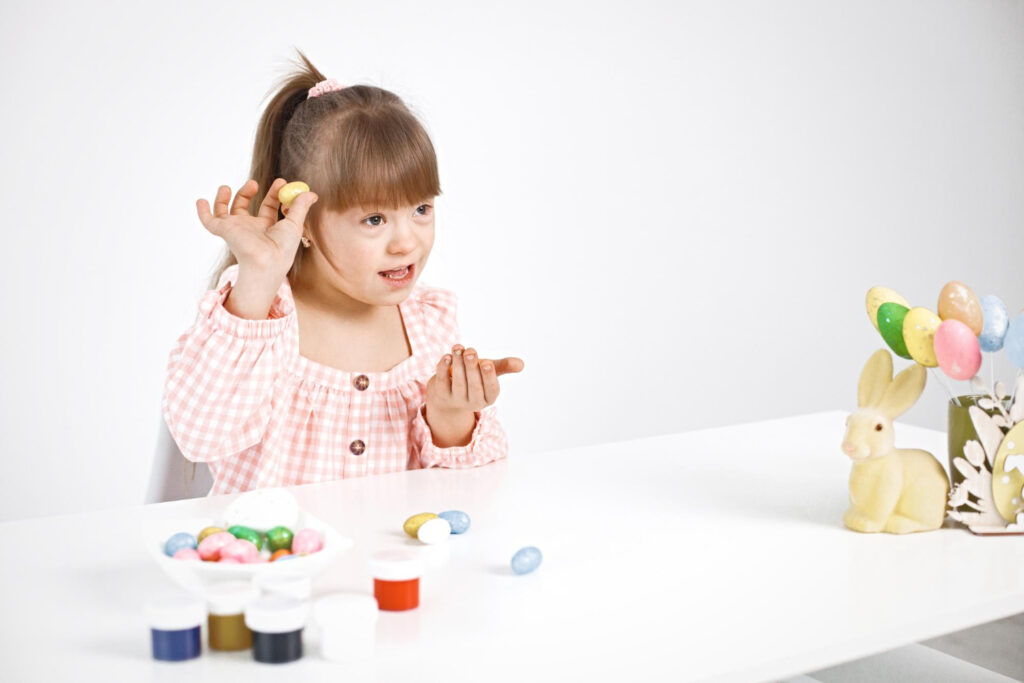Autism Spectrum Disorder (ASD) affects children across all genders, but the signs in girls can often be more subtle and overlooked. Many girls with autism are misdiagnosed or undiagnosed because their symptoms may differ from the typical behaviors associated with ASD. At HOPE Centre for Autism, we aim to raise awareness about autism in girls and provide insights for parents to recognize the signs early and support their children effectively.
Why Autism in Girls is Often Missed
Autism is traditionally associated with behaviors that are more easily observed in boys, such as hyperactivity or repetitive movements. However, girls with autism tend to display traits differently. Some key reasons why autism in girls often goes undiagnosed include:
- Masking: Girls may consciously or unconsciously mimic the behavior of peers to blend in socially, hiding their difficulties.
- Social Adaptation: Girls may show a strong interest in friendships but struggle with understanding social cues.
- Different Interests: Girls with autism may have deep interests, but these are often socially acceptable (e.g., books, animals) and don’t raise concerns.
- Fewer Behavioral Outbursts: While boys with autism may exhibit disruptive behaviors, girls are more likely to internalize their emotions, leading to anxiety or depression.
Common Signs of Autism in Girls
While every child is unique, here are some signs of autism that are often seen in girls:
1. Social Difficulties
- Difficulty making or keeping friends despite a desire for social interaction.
- Challenges understanding social cues like body language, facial expressions, or sarcasm.
- Prefers playing with younger children or engaging in solitary activities.
2. Communication Differences
- May speak fluently but struggle with back-and-forth conversations.
- Talks about specific interests in great detail but may not notice when others lose interest.
- May avoid eye contact or find it uncomfortable.
3. Sensory Sensitivities
- Discomfort with certain sounds, textures, lights, or clothing.
- Prefers routines and struggles with changes or unexpected events.
- May need quiet spaces to manage sensory overload.
4. Emotional Regulation Issues
- May experience frequent anxiety, meltdowns, or shutdowns.
- Has trouble expressing emotions and may internalize frustration or sadness.
- Prone to perfectionism, which can lead to stress and burnout.
5. Special Interests and Repetitive Behaviors
- Develops intense interests in specific topics but these may seem socially appropriate (e.g., animals, literature).
- Engages in repetitive routines, though they might not be as obvious as stimming behaviors seen in boys.
Challenges Faced by Girls with Autism
Girls with autism encounter unique challenges that can affect their emotional well-being and development.
1. Social Isolation
Despite their efforts to fit in, girls with autism often feel misunderstood or left out, leading to loneliness.
2. Anxiety and Depression
The pressure to conform socially can cause significant emotional distress, contributing to anxiety and depression.
3. Late or Misdiagnosis
Girls with autism are often diagnosed later in life, missing out on early interventions that could support their development.
4. Bullying and Peer Rejection
Difficulty understanding social norms can make girls with autism more vulnerable to bullying or exclusion by peers.
How HOPE Centre for Autism Supports Girls with Autism
At HOPE Centre for Autism, we recognize that early diagnosis and tailored support are essential for girls with autism to thrive. We offer a range of services, including:
- Individualized Therapy: Our team designs personalized therapy plans that address each child’s specific needs.
- Social Skills Training: We help girls develop the skills needed to build meaningful friendships and navigate social situations.
- Parent Support Groups: We provide resources and guidance for parents to understand their child’s unique challenges and advocate for their needs.
- Sensory Integration Therapy: Our sensory-friendly approach helps children manage sensory sensitivities and avoid overwhelm.
Tips for Parents
If you suspect your daughter may have autism, consider these steps:
- Observe Behavior: Keep track of behaviors and note patterns in social, emotional, or sensory responses.
- Seek Professional Evaluation: Reach out to an autism specialist or developmental pediatrician for a thorough assessment.
- Connect with Support Networks: Join parent groups or autism advocacy organizations for resources and emotional support.
- Celebrate Strengths: Focus on your child’s unique abilities and interests to build confidence and self-esteem.
Conclusion
Recognizing autism in girls can be more challenging, but with the right support, they can thrive socially, academically, and emotionally. Early intervention and understanding are key to helping girls with autism reach their full potential.
At HOPE Centre for Autism, we are committed to providing the support and resources needed to empower every child. If you are seeking help or resources for your child, contact us today. Together, we can create a brighter future for your child and family.
